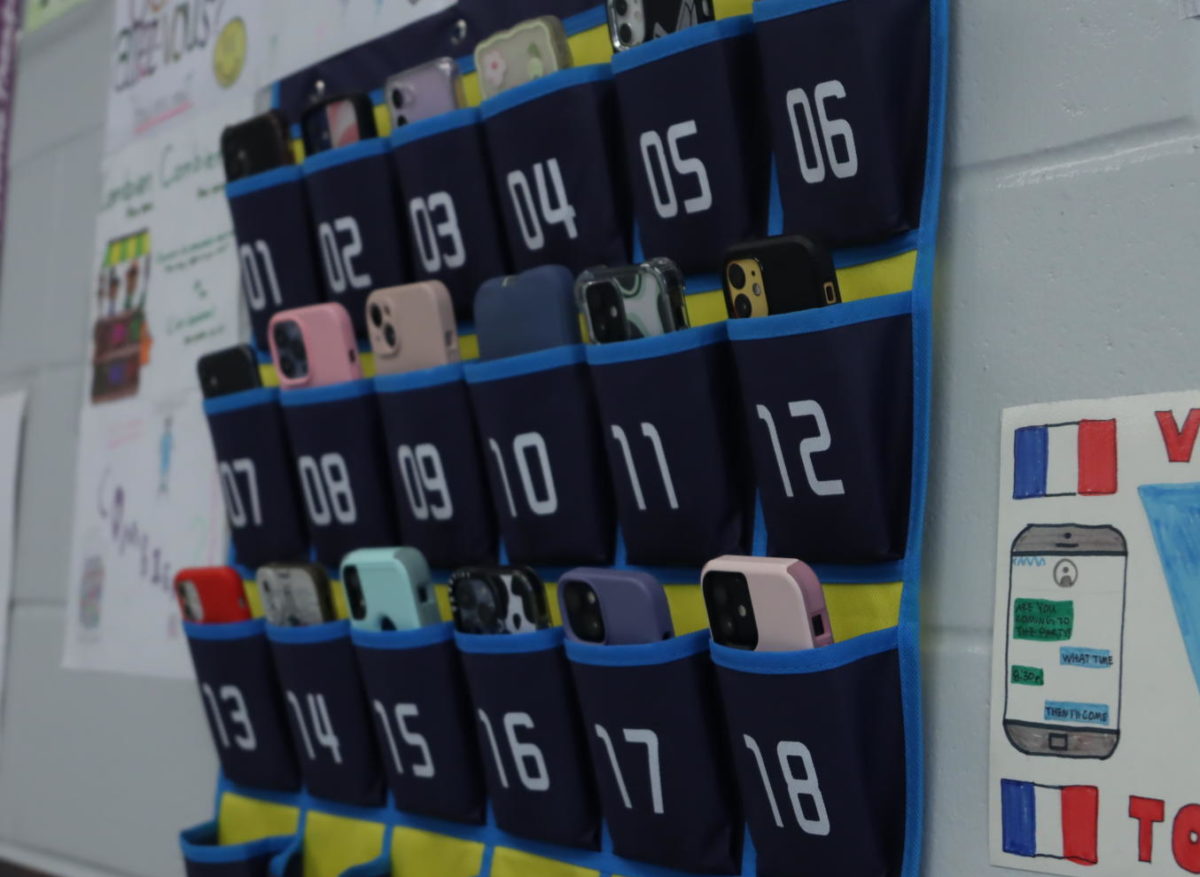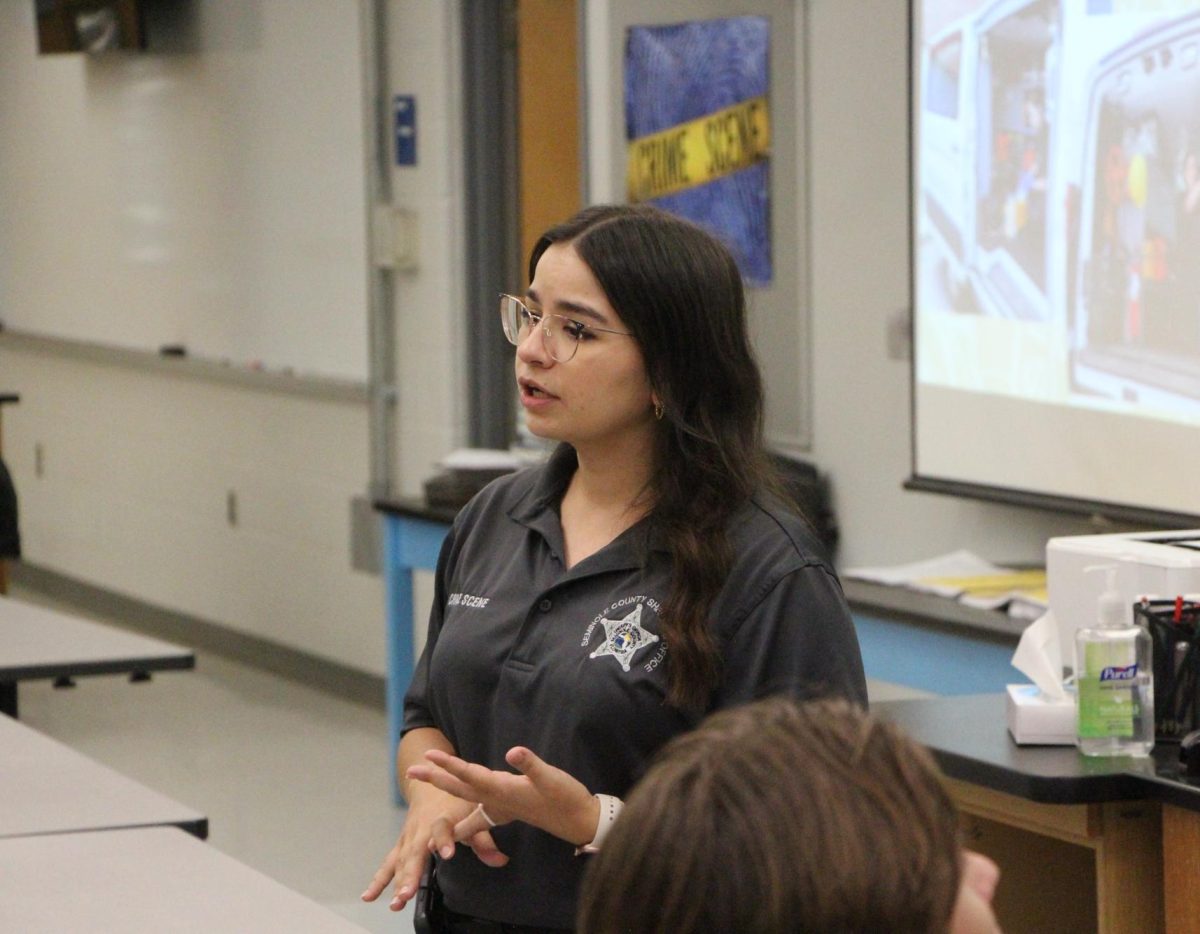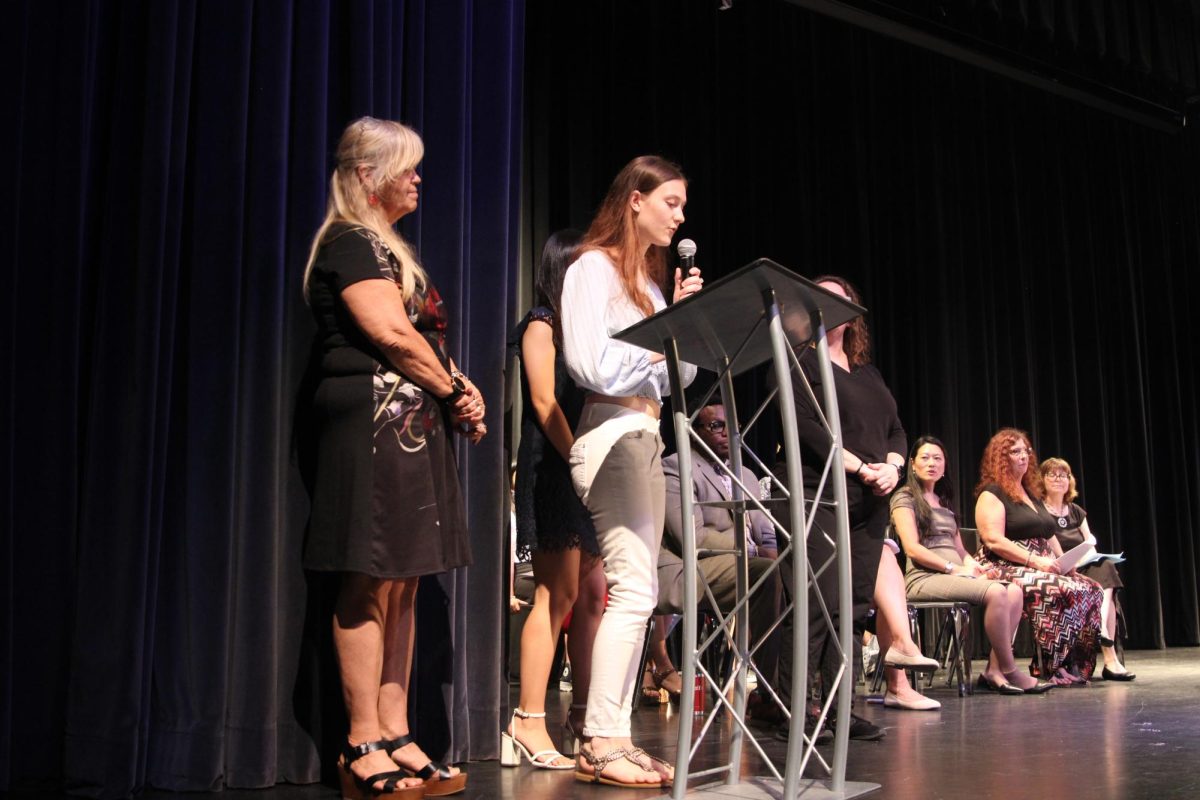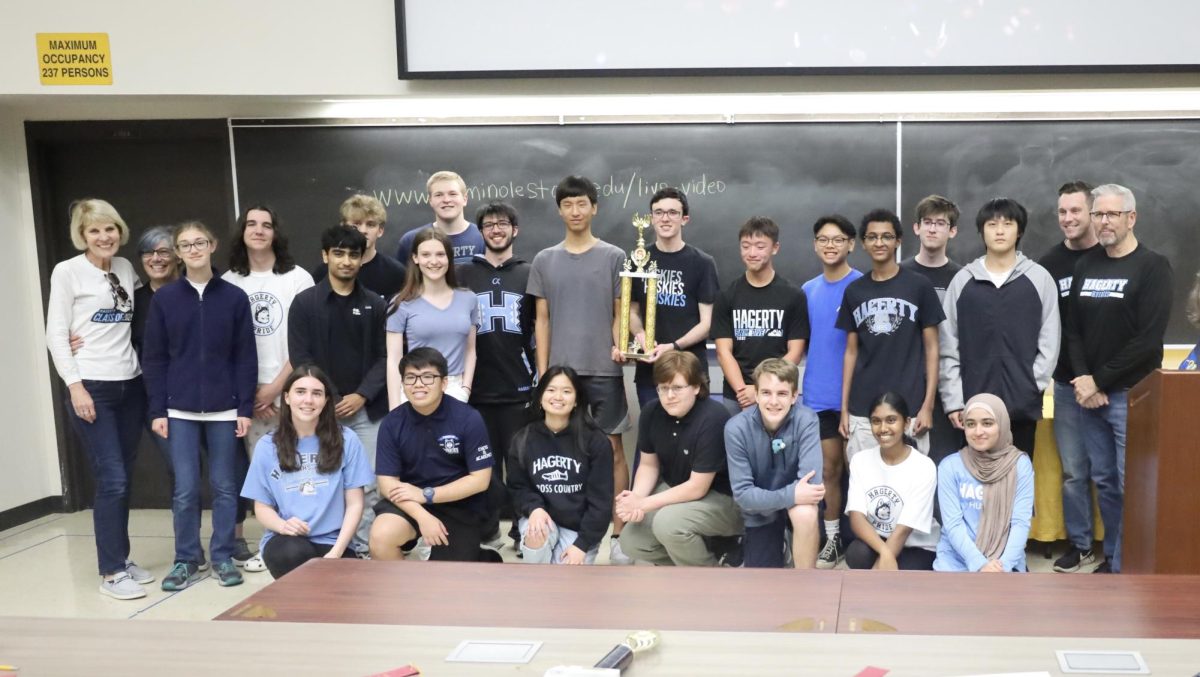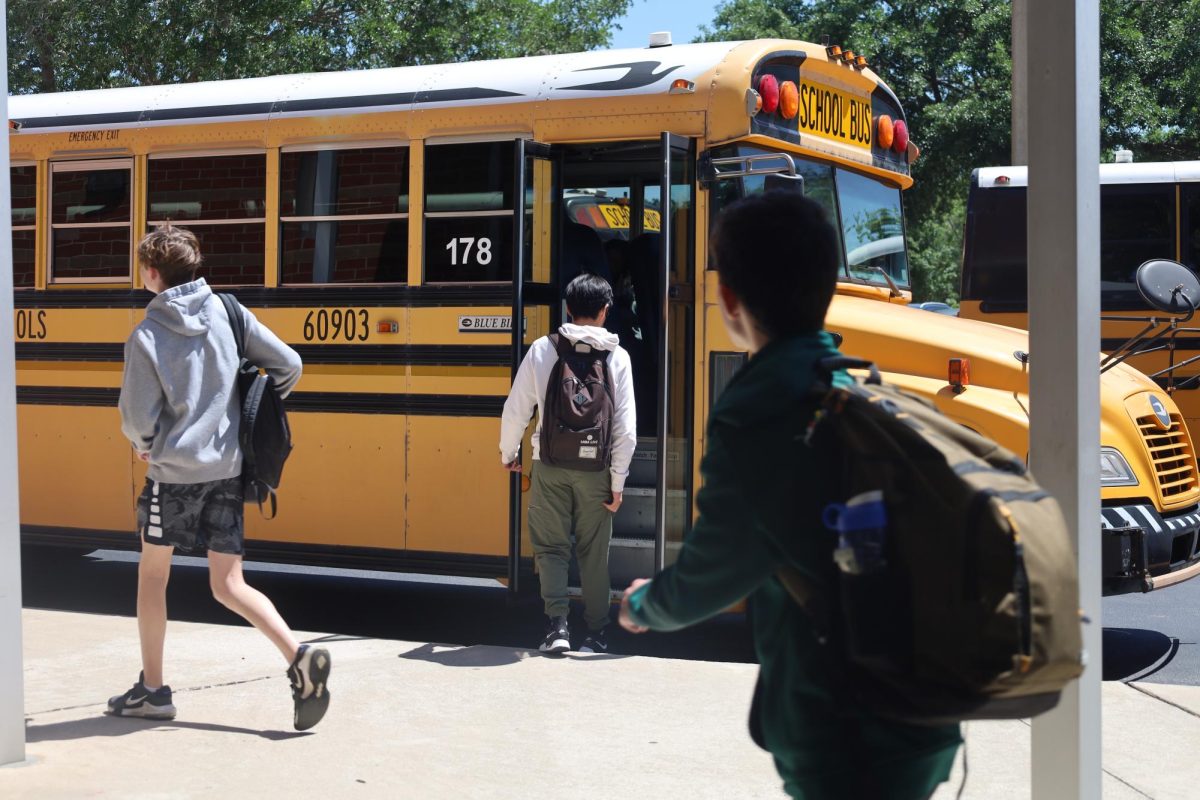As soon as the bell rings, students head over to their designated class and put their phone away—inside a pocket in their backpack or hoodie, or even a cubby hanging in the back of the room, where it will stay until needed otherwise. This is now routine for everyone, due to a new Florida law that ensures that technology usage in school is not allowed unless explicitly stated by a teacher for educational purposes. The law was approved in May, but wasn’t enforced until this August, bringing a different atmosphere in the classroom for the new school year
According to principal Robert Frasca, the rule prevents students from using electronic devices such as the cell phone during instructional time, unless they are given permission from a teacher to use one for educational purposes.
It is up to teachers to decide entirely when they want students using their phones, and some teachers have even started giving extra credit points to those who keep their device in a ‘phone prison’ rather than their backpack. Many have also designated a place in the classroom for students to keep their phones when they are not being used. A double-sided green and red sign that was implemented last year made a comeback, which made it easier for teachers to let their classes know when they are allowed to take out their technology.
“I use the sign and turn it when students are allowed to, and whether or not the situation calls for it, they put their phones in their backpacks when they’re not allowed to have them out,” Algebra II teacher Jennifer Compher said. “I think it’s good, because I think it gets students off their phones in class.”
The new law is not much of a change for students, but for some, it can be exasperating.
“This law doesn’t affect any of my core classes since teachers were already clear about no phones during class,” Jane*, a sophomore, said. “However, for electives it makes it super inconvenient. I take art, and one thing I used my phone for a lot in that class was music and references. It doesn’t distract me. But overall, it doesn’t make much of a difference, since the original phone policy was similar.”
“I want students to know [that] when they come to school, the goal here is to learn and pay attention, and the phone is a huge distraction to them. Kids need to just focus on their job, which is doing what’s supposed to happen in class and learning.”
— Robert Frasca, principal
Many students have had concerns over what the new law means for getting in contact with their guardians, and what it means for them if they get in trouble, since it is no longer just a school rule.
“In case parents worry about emergencies and getting a hold of their kids, we have the ability to do that [contact] in those scenarios. We also have access to administration and security upon the very quick immediate notification,” Frasca said. “I think at this point, at least from what I’m hearing, this is working.”
The law has been adjusted per county, with Orange County banning cell phone usage entirely during the school day, but for Hagerty, the policy is not that dramatic of a change.
“Last year, this was our procedure. Now the law just backs that procedure a bit,” Frasca said.
Like most students, Frasca does not want to see Seminole County copy Orange County’s policy, as he believes a total phone-ban is too restrictive.
“I personally don’t want to take phones away from kids at lunch or on break or things like that,” Frasca said. “I think there’s a compromise to that.”
While the recent law has sparked mixed reactions overall, its intended purpose is to keep everyone on campus safe.
“Most of our issues that happen on campus happen as a result of something that takes place on the phone—whether it’s social media, text messaging, things like that,” Frasca said. “I want students to know [that] when they come to school, the goal here is to learn and pay attention, and the phone is a huge distraction to them. Kids need to just focus on their job, which is doing what’s supposed to happen in class and learning.”
*name changed for privacy

